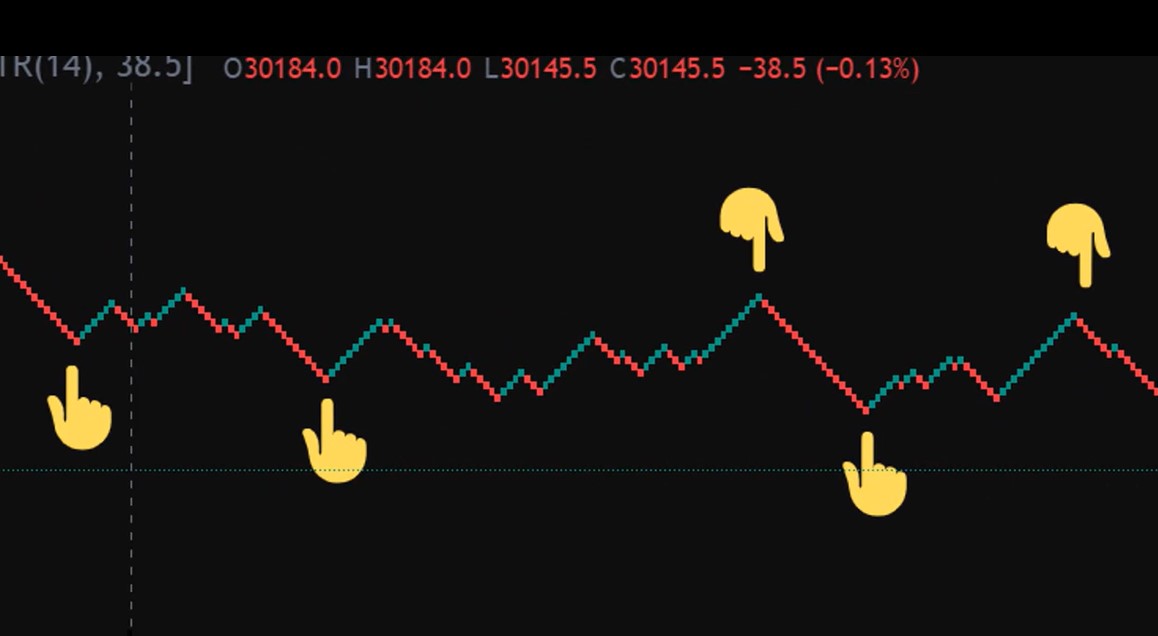The age of 24 months is an important milestone in independence and new skill development. This is also the period of crisis for my two-year-olds .
Physical improve
When the child is 2 years old, the weight and height increase significantly. On average, the child weighs about 12 kg, is 87 cm tall, and has relatively complete teeth (20 teeth). At 24 months, babies are more and more active, especially boys. The child's motor ability is relatively good, children can run anywhere, whenever they want.

However, most children prefer to run than to walk. Children love to do their own thing without any help from anyone. Children can open doors by themselves, even bolts if they can reach them. A special hobby of this age group is to like to go up and down stairs alone.
Babies were able to run fast, go backwards, dance, could maintain balance when standing with one leg, swaying along to music ... Not only hands and eyes, now they can coordinate both arms, legs and eyes. Still not mature.
24-month-old baby know what to do?
Stand on your toes
Keep your balance when walking on the sidelines
Can run
Good climbing
Know up and down stairs
Know how to play football
Can dance
Throw objects up high
Pick up the type of pliers correctly
Know how to control toys
Can rotate the door handle and press the button
Can turn page by page
Know how to use a spoon and fork
6 puzzle blocks can be assembled
Activities promoting physical development:
Walk / walk
Let your kids run around the park.
Take your child to a toddler playground.
Encourage your child to roll and clear his toys to improve good motor skills.
Giving paper and crayons so that your baby can draw helps develop good motor skills.
Cognitive development of children 24 months

DEVELOPMENT CAMAN - Baby is 24 months old
The child's cognitive ability also reached a high level, he was able to understand the common gestures of everyone around him. Memory is also better than in previous months
To improve your baby's memory at this stage, mothers can play a puzzle with their baby or stick paper on a book. 24-month-olds are able to turn books on their own, but still need the mother's help to find the right puzzle pieces. This game is also a way to help your baby develop hand-eye coordination skills. Teach your baby the common functions of home control buttons. Your baby will notice how you do it and gain more information from his senses.
Children ask a lot of questions and want to be answered by adults immediately. If you do not want to answer your child, you should not be angry or angry, take a moment to respond to your child or promise to answer your child before bedtime, for example, this helps children develop a habit of being responsible. responsibility, and care about other people's work.
Children love to imitate others and are especially interested in talking on the phone. Some children often hold up something similar to a phone and create a long conversation on their own. Children extremely accurately imitate the parents' attitude and way of talking when they call.
Development milestones:
More and more interesting in learning the name of each object
Name simple drawings in the book
Know how to use simple household objects (spoon for eating, cell phone for talking)
Can accurately call the names of at least 6 parts of the body
Remember where your favorites are when they're out of sight (cookies are in the cupboard, toys are in the box)
Follow complex commands (2 steps)
You can start sorting objects by category (size or attribute).
Activities to promote 24-month baby's cognitive development
Sing together.
Practice the alphabet and count.
Point to objects and identify them together.
Ask question.
Simple explanation of every step you take. ("I'll tie your shoelaces for now.")
Provide choices and let your child decide. ("Do you want a red ball or a blue one?")
Offers a variety of games to encourage creativity and problem solving.
Talk about the people in your child's life when they are not around. (“Mom is at the office,” “Dad is at the supermarket,” “She lives at Uncle Ho's house.”)
24-month-old child's development in social & emotional skills

Stubbornness is one of the most prominent features of a baby during this period. When your baby wants something, he can burrow until his mother agrees. Even many babies know how to pretend to be angry to have their mother fulfill their wishes.
24-month-old babies often have difficulty controlling their anger and suddenly change their emotions suddenly. This is also the period when the baby begins to show a little resistance, getting irritable, like wanting to challenge parents' patience level. Babies are also prone to discomfort, suffering, but immediately return to normal. At this time, the baby really needs mother support to adjust emotions and understand the world around them. When the mother gently comforts and comforts her, she will understand that her parents are there to support all of their emotional situations.
Babies love to make friends, and are more willing to share their toys with others, but it's still quite difficult. Your baby can lend you something, but will immediately find a way to get it back. Babies are also easily upset and impatient. However, mothers should let the babies deal with each other during play, and only help if the baby cannot handle it on their own.
Development milestones:
Poor emotional control
Easy to get angry
Emotions can be quickly changed
May favor mother over father or vice versa
It is more fun to play with other babies
Imitate other adults and children.
Recognize yourself as an individual that is separate from others.
Increasingly independent.
Show challenging behavior.
Fear loud sounds and some animals.
Activities promoting social emotional development:
Invite other children over to play
Allows your child to interact with people of all ages.
Identify your child's feelings to help them recognize each emotion.
Provide children's toys and imaginative play encouragement tools such as dolls, kitchen sets, or blanket fortresses.
Let your child help you with simple tasks like washing clothes, making clothes ...
24-month baby language and speech development
Children's speaking and social skills have also improved. At this time, children can tell their parents a little story, or sing a song they like. Do not regret compliments every time your child tells a story or sings. This will create a special excitement that will help the child continue to perform next time.
The baby spoke into short sentences with length from 2 to 3 words or more. The vocabulary of a two year old usually consists of 50 to 75 words. Your baby can name people and objects he sees often, such as the items inside her bedroom (e.g. bed, pillows, lights) and around the house (e.g. couch , TELEVISION). Your baby can also name common foods he or she eats and can even request specific foods, such as cookies, apples and milk. And because your child understands the concepts of "less" and "more", she says "more" when she sees less food on her plate or has finished it.
Babies can also know and recall the colors of objects and count to five or ten.
You will find that, with your baby's growing vocabulary, he will ask you questions about why things are still working - when he hears the answers he will only hear the first 3 to 4 words in the sentence. answer before turning your short attention to another topic or activity. In other words, if you want your baby to understand the answer, keep it short.
During playtime, listen to the imaginary conversations your child makes with his toys and pets. You will be delighted to discover that these conversations are similar to those you have told your baby.
Development milestones:
Can say between 50 and 70 words
Use simple phrases or put 2 words together (“Hang Out”)
Can say the first complete sentence by 18 to 30 months of age
Can sing
Know how to use the name to designate yourself instead of "child" (me, me)
You can ask "Why?"
Strangers can understand half of what he says
Activities promoting language and speech development:
Should not have corrected your child's grammar. Simply repeat what your child says with the correct words.
Talk to your child in a normal but accurate and clear way to expand your vocabulary and sentences.
Instead of saying, "Okay," instead, "Okay, I'll help you tie your shoes", or "Okay, I'll read you a book."
Read picture books to your child often. Pause between scenes and prompt your child to answer questions about what they see on pages like "Can you find the cat?" Or "Which color do you like?"
Continue to sing rhymes, songs at your child's favorite age, read poems and rhymes for children
Health and nutrition of baby 24 months

At this age, the child's digestive system is relatively complete. Moreover, 24-month-old children can get acquainted and eat many dishes similar to adults thanks to their developed teeth. The average child's diet by 2/3 compared to the diets of adults.
Because children are still in the process of growth and development, parents should still pay special attention to the child's daily diet. The daily diet should contain all essential nutrients for growth such as: Protein (protein), lipid (fat), carbohydrates (sugar, flour), minerals, vitamins, micronutrients and water.
However, children do not like to eat strange foods, but only like to eat familiar foods that they enjoy. Therefore, parents need to pay attention to when they want their children to experience new foods that they need to practice with a small amount to a lot, sometimes coming often to avoid food allergies or loss of appetite.
Do not force your baby to eat more 24 months when he / she does not want to eat anymore to avoid feeling afraid of eating next time.
Activities to enhance the health and nutrition of your two years:
Reduce up to 2 percent of your child's fat intake.
Provide a balanced diet with whole grains, legumes or beans, fruits and vegetables.
Offer your child a wide variety of foods - and show your baby you eat a wide variety of foods and patterns of good eating habits.
Give your child enough sleep (a child of this age needs 14 hours of sleep a day) because sleep provides the downtime that is essential for physical and growth.
When do you need a doctor's consultation
Take your baby to the doctor if he or she has one of the following symptoms:
Not running or always walking on toes
Do not walk regularly.
Don't imitate actions or repeat words.
Can't follow simple instructions.
Don't say the two-word phrase ("drink milk", "get the ball").
Do not respond or express appropriate feelings.
Do not participate in fantasy play
Can't use everyday objects like spoons, brushes and pillows.
Tips for parents
In this milestone , the role of parents is extremely important for the comprehensive development of both physical and intellectual children. Therefore, parents are still not neglected to maintain a reasonable daily diet, keep the child's body hygiene to fight some susceptible diseases.
In addition, you can play with children to promote children's creativity as well as understand them better. You can organize a small party to celebrate the 2nd birthday and do not forget to save these wonderful moments.
see more
25-month-old baby - I will be amazed at your skillful hand-eye coordination!
DEVELOPMENT CAMAN - 26-month-old baby - WebTech360 Vietnam
DEVELOPMENT HANDBOOK: The development of the 27-month-old baby and the things you need to pay attention to


























